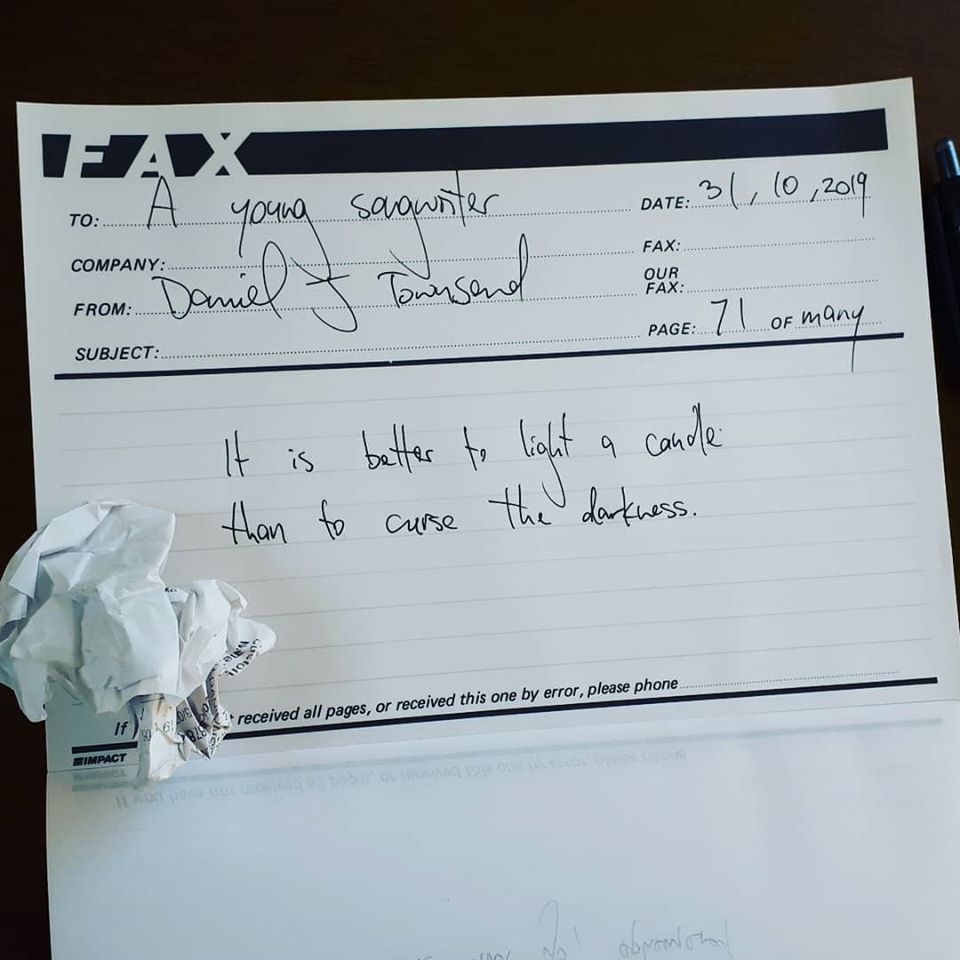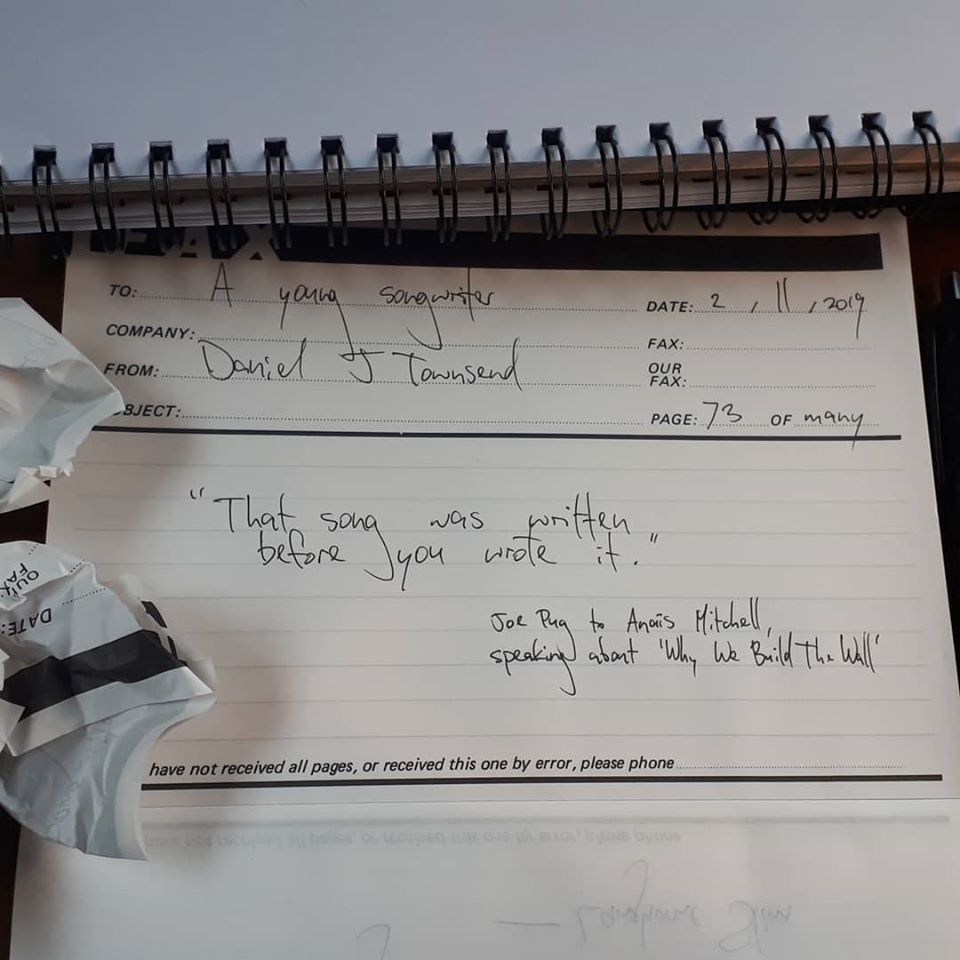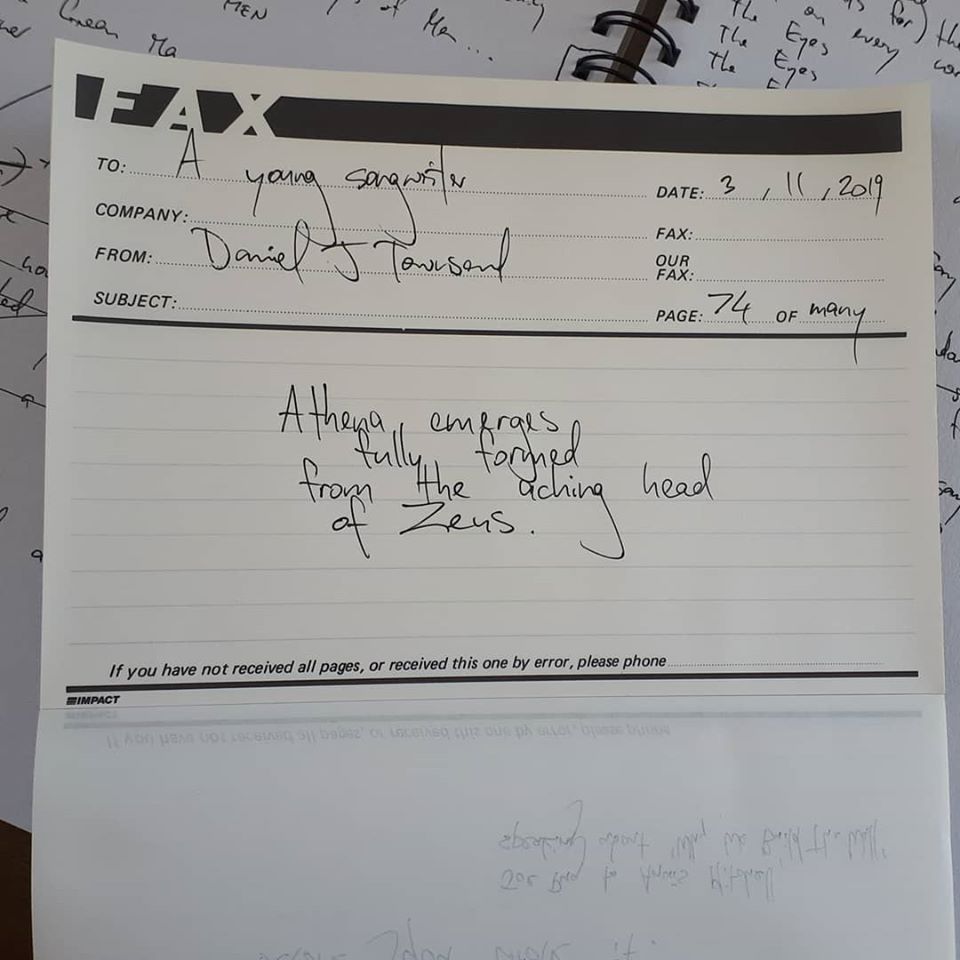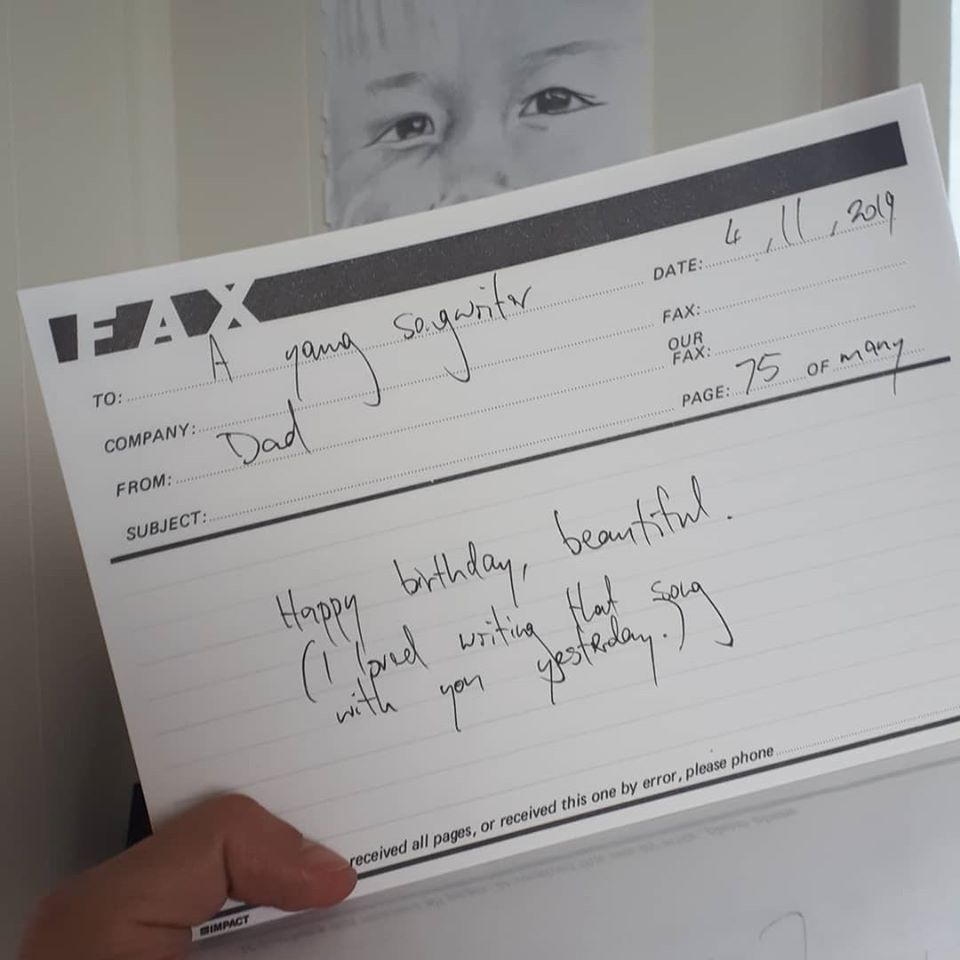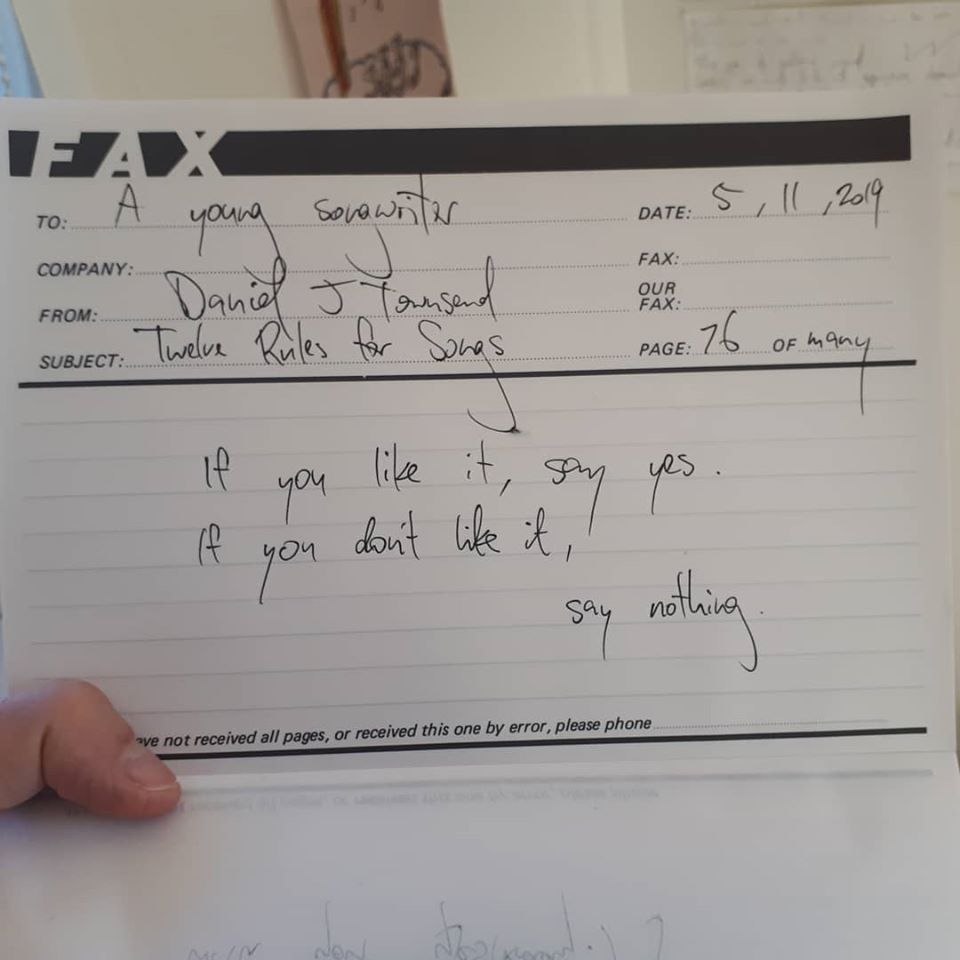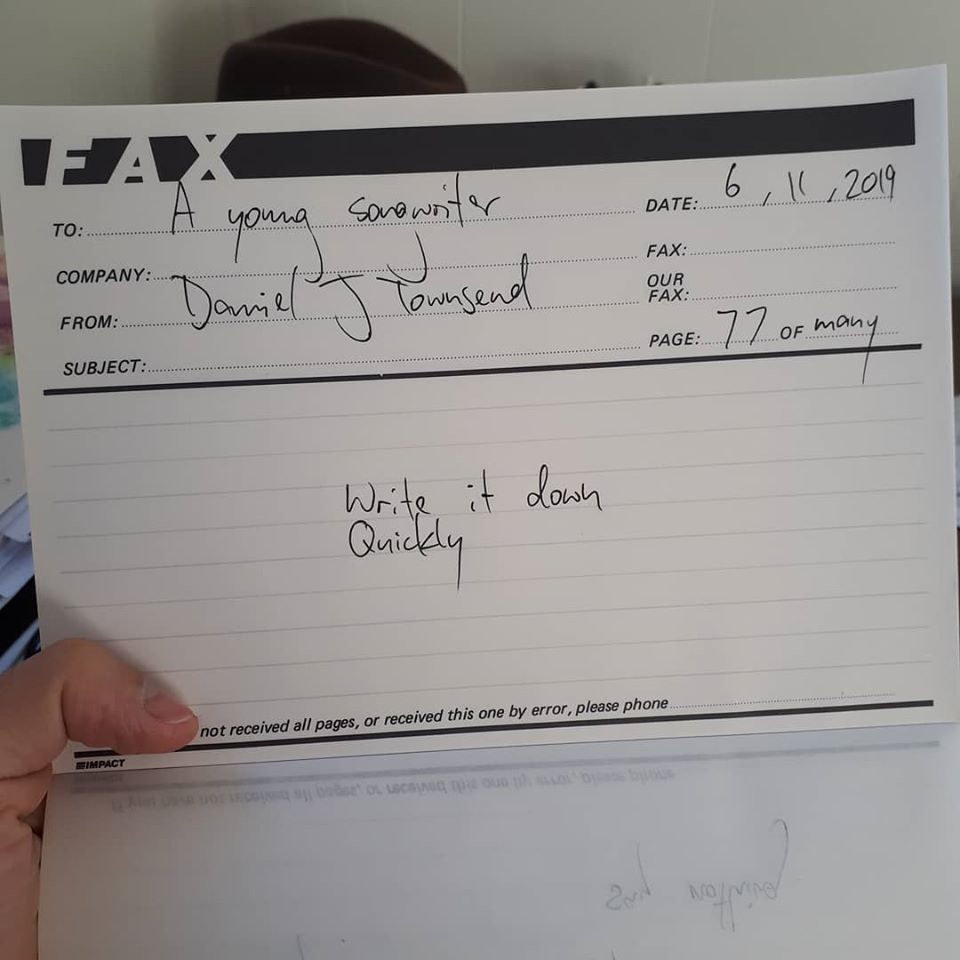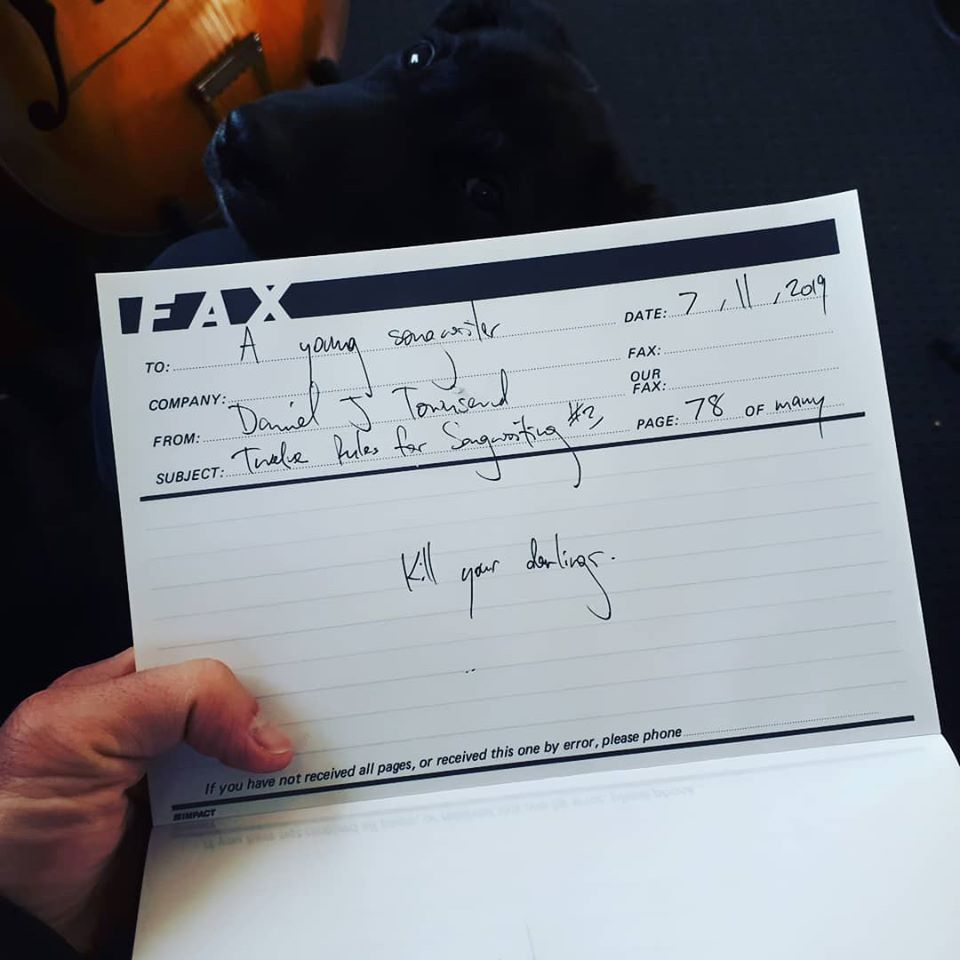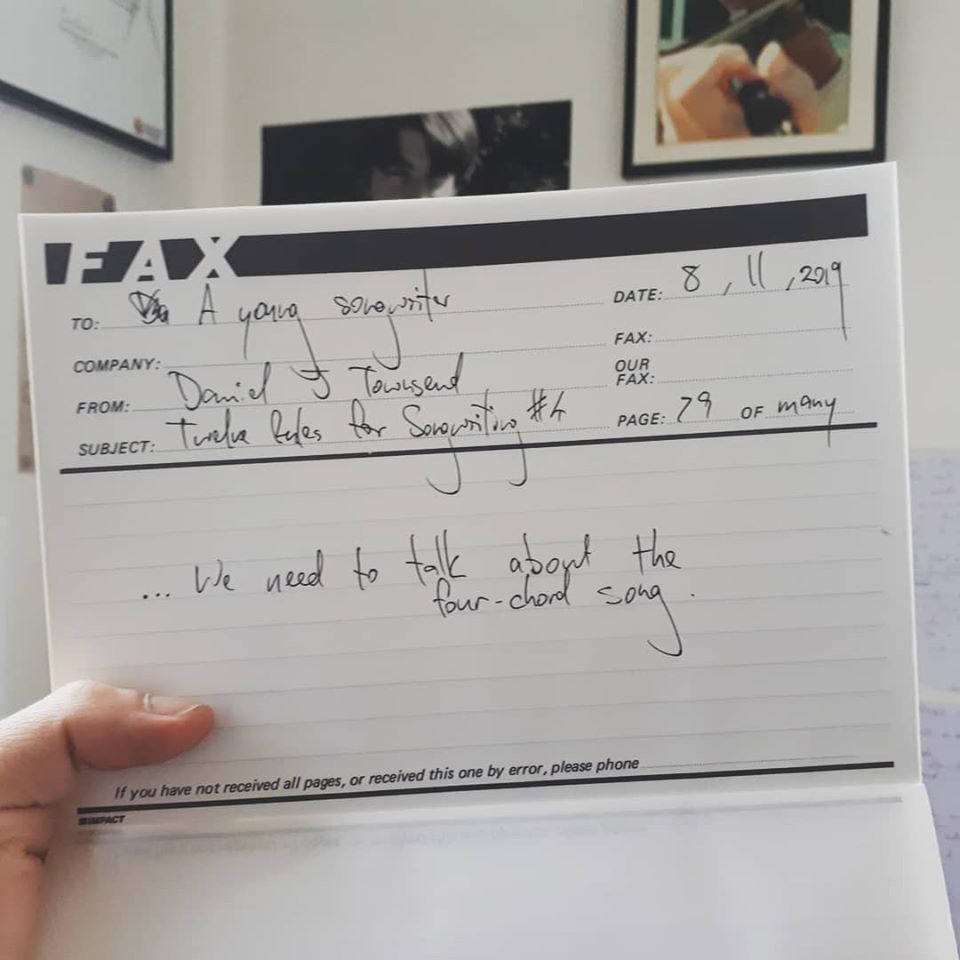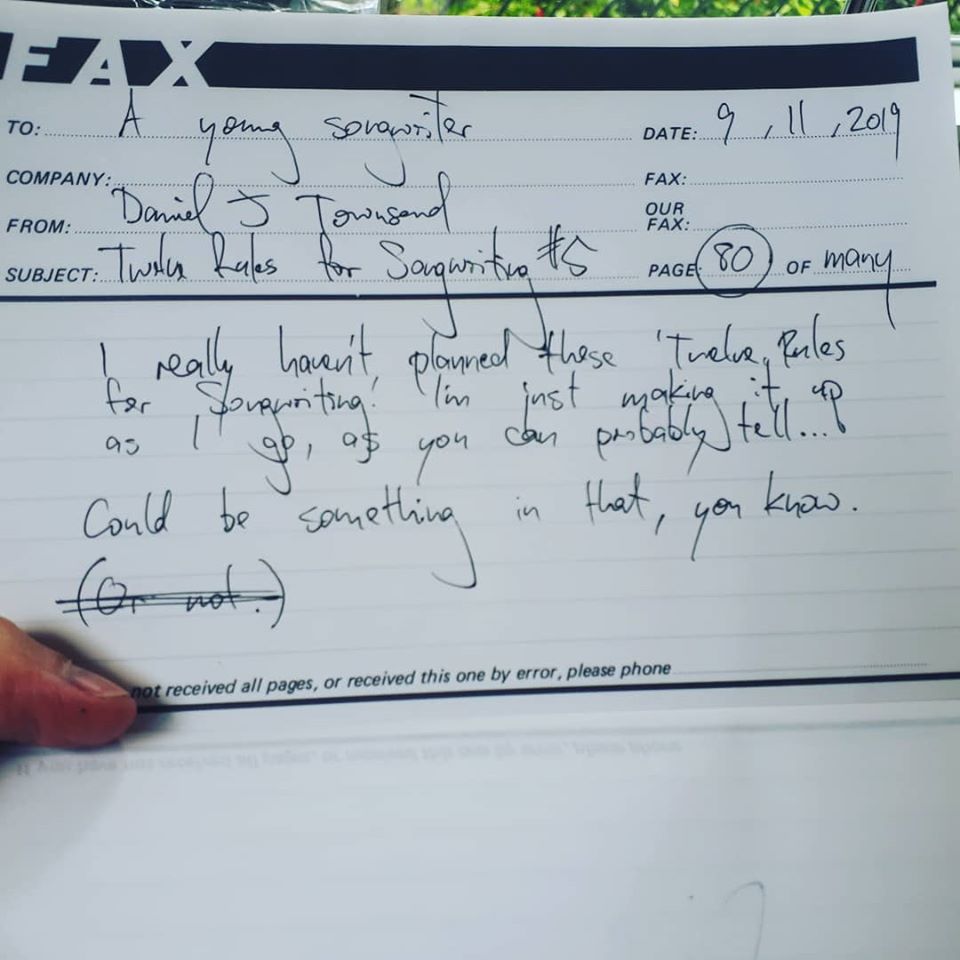Halloween is an empty, death-scented shell. But that's not a bad thing.
I left footprints on a beach last week, seeking such things. Held them to my ears to hear my heady heartbeat whoosh-whooshing like the sea, the sound of the memory of that little living thing who once called this death-scented shell home. It smells like death because it used to be filled with life.
I took it home and placed it on my desk, next to my Fax Cover Sheets.
Surely death is just the memory of living things. "Memories are films about ghosts," according to Counting Crows. Ghosts and partly-formed, long-gone folks who wake you up in the night's middle.
When your ghosts come knocking, be hospitable and send them on their way. Then open your widows to get rid of the smell.
I left footprints on a beach last week, seeking such things. Held them to my ears to hear my heady heartbeat whoosh-whooshing like the sea, the sound of the memory of that little living thing who once called this death-scented shell home. It smells like death because it used to be filled with life.
I took it home and placed it on my desk, next to my Fax Cover Sheets.
Surely death is just the memory of living things. "Memories are films about ghosts," according to Counting Crows. Ghosts and partly-formed, long-gone folks who wake you up in the night's middle.
When your ghosts come knocking, be hospitable and send them on their way. Then open your widows to get rid of the smell.
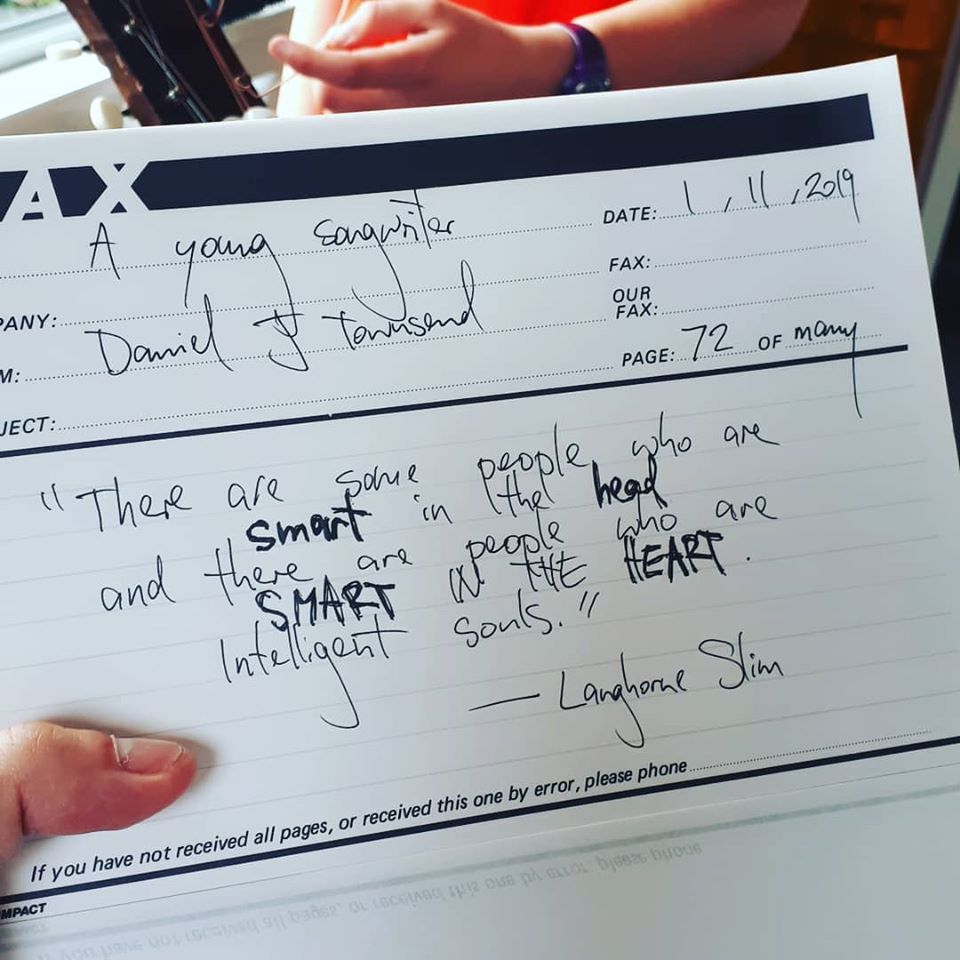
I know this young fella who, on the days he attends school, drives his teachers crazy.
"He's a really smart kid," they say "but he just doesn't do the work."
When I talk with him, I understand.
"I reckon that when we die we live another life," he says. "Like, another person who has died, we get to live their life and they live another person's life. One person in the world is God, and they have lived all the other lives. It could be that guy right there. Only after you've lived every life possible can you be truly divine."
He's really smart. That's why he doesn't do the work.
"He's a really smart kid," they say "but he just doesn't do the work."
When I talk with him, I understand.
"I reckon that when we die we live another life," he says. "Like, another person who has died, we get to live their life and they live another person's life. One person in the world is God, and they have lived all the other lives. It could be that guy right there. Only after you've lived every life possible can you be truly divine."
He's really smart. That's why he doesn't do the work.
I don't know if it's a true story, but it's a story with truth.
My brother's class was walking to the beach for an excursion. Apparently, some kid stuck his hand up in the air, just waving it around, and into his open palm the breeze blew a five dollar note.
Or was it a fifty? Doesn't matter, really. Somehow we recognise the truth in this tale: Sometimes, if your hands are open, life hands you something precious. You catch the fiver or the fifty or the biggest fish in the ocean. At the very least, you catch the breeze.
You and I may well catch a song. We may find ourselves singing a fully formed thing and wondering where the fuck it came from.
Anais Mitchell talks about Why We Build The Wall that way. Paul Kelly talks about Middle Of The Air that way too. Paul McCartney heard Yesterday in a dream. Adele's Hometown Glory wrote itself. I once caught a song called I Can Keep The Peace No More. It wasn't there, and then it was.
That five dollar note came from somewhere, though, and these songs don't come out of nowhere, either. Regardless, you have to be ready. You find them in the middle of the air, fingers outstretched.
My brother's class was walking to the beach for an excursion. Apparently, some kid stuck his hand up in the air, just waving it around, and into his open palm the breeze blew a five dollar note.
Or was it a fifty? Doesn't matter, really. Somehow we recognise the truth in this tale: Sometimes, if your hands are open, life hands you something precious. You catch the fiver or the fifty or the biggest fish in the ocean. At the very least, you catch the breeze.
You and I may well catch a song. We may find ourselves singing a fully formed thing and wondering where the fuck it came from.
Anais Mitchell talks about Why We Build The Wall that way. Paul Kelly talks about Middle Of The Air that way too. Paul McCartney heard Yesterday in a dream. Adele's Hometown Glory wrote itself. I once caught a song called I Can Keep The Peace No More. It wasn't there, and then it was.
That five dollar note came from somewhere, though, and these songs don't come out of nowhere, either. Regardless, you have to be ready. You find them in the middle of the air, fingers outstretched.
This story is true. Not because it happened, but because it happens.
Zeus has a headache. It starts as a dull ache from some distract place back there, like half an idea, but it soon conquers his mind.
Zeus has a splitting headache and only one thing on his mind. He is in agony and wills the pain to end. Suddenly, a woman bursts from his skull, dressed in armour. Athena is clutching a sword, but she is naked under her armour.
Armed but vulnerable, like a fully formed idea.
If your mind is troubled, you'd best be letting that woman out. She's got shit to do, man.
Zeus has a headache. It starts as a dull ache from some distract place back there, like half an idea, but it soon conquers his mind.
Zeus has a splitting headache and only one thing on his mind. He is in agony and wills the pain to end. Suddenly, a woman bursts from his skull, dressed in armour. Athena is clutching a sword, but she is naked under her armour.
Armed but vulnerable, like a fully formed idea.
If your mind is troubled, you'd best be letting that woman out. She's got shit to do, man.
You are a brilliant songwriter, kid. Such whole-hearted, effortless melodies. Your music is you, so it's beautiful.
Thanks for sharing those two hours with me yesterday. It's a great song. I've been singing it all day, thinking of you.
I love you.
Happy birthday.
Thanks for sharing those two hours with me yesterday. It's a great song. I've been singing it all day, thinking of you.
I love you.
Happy birthday.
Musicians say "yeah" a lot, and not just during mic check. We speak in the affirmative during performance and songwriting too. Heaps.
Yes is stronger than no. Yes gives confidence. Yes gives inspiration. Yes keeps momentum. No just stops things, like a kid's finger poking the googly eyes of a snail.
If you are writing, focus on the Yes. Especially if you are writing with someone else. Especially if you can feel the wheels are slowing down.
Our culture today has a whole lot of No. I get it. Stop climbing, stop digging, stop hurting, stop whipping the horse's eyes...
It's when we find the Yes that things start to happen.
Yes to respect, yes to our grandchildren, yes to kindness. Find the Yes today. Then say it loud.
Yes is stronger than no. Yes gives confidence. Yes gives inspiration. Yes keeps momentum. No just stops things, like a kid's finger poking the googly eyes of a snail.
If you are writing, focus on the Yes. Especially if you are writing with someone else. Especially if you can feel the wheels are slowing down.
Our culture today has a whole lot of No. I get it. Stop climbing, stop digging, stop hurting, stop whipping the horse's eyes...
It's when we find the Yes that things start to happen.
Yes to respect, yes to our grandchildren, yes to kindness. Find the Yes today. Then say it loud.
Some ideas are old, old stars, glowing in your imagination night after night, but many ideas are shooting stars, space junk or chunks of ice, sizzling for a second as they pass through the magic wall between there and here. Most ideas are just dust flecks or mystery wrigglers, blindly circumnavigating your eye ball.
Whatever they are, they pretty much all just come and go.
It happens just as you're falling asleep. The flare is so bright you're sure you'll remember it in the morning. You won't. Write it down now. In the dark. With your eyes closed, if you're that tired. Record it on that studio you keep in your pocket. Beethoven and The Beatles would have killed for that thing. Speech to text, baby. No excuses.
It might not be any good? Correct. It's probably balls. Write it down anyway.
It sounds like something you've heard somewhere? Duh. That's how language works. Same words, different order. Write it down. (Down it, right? Downright it..)
It doesn't make sense? How would you know?! It's just sizzled in front of your eyes for a second. You don't even know what it is! Write it down and look at it later.
You'll remember it? No. You won't. Write it down.
I have thousands of pages filled with mostly nothing, a few great poems and a few good songs. Thousands of pages. You've gotta dig deep, you know.
Write it down.
Whatever they are, they pretty much all just come and go.
It happens just as you're falling asleep. The flare is so bright you're sure you'll remember it in the morning. You won't. Write it down now. In the dark. With your eyes closed, if you're that tired. Record it on that studio you keep in your pocket. Beethoven and The Beatles would have killed for that thing. Speech to text, baby. No excuses.
It might not be any good? Correct. It's probably balls. Write it down anyway.
It sounds like something you've heard somewhere? Duh. That's how language works. Same words, different order. Write it down. (Down it, right? Downright it..)
It doesn't make sense? How would you know?! It's just sizzled in front of your eyes for a second. You don't even know what it is! Write it down and look at it later.
You'll remember it? No. You won't. Write it down.
I have thousands of pages filled with mostly nothing, a few great poems and a few good songs. Thousands of pages. You've gotta dig deep, you know.
Write it down.
Novelists and screen writers do it all the time. They're working on a story, there's a character they love, but it's really not working; the story would be better without that character...
It's a really difficult moment, but they've gotta kill em off. Not within the script. These characters don't walk off into the sunset. You erase them completely, as if they never existed.
And you carry them in your heart, like the father of a missing child.
Some lyrics don't work. Some chord changes are cliche. Some entire songs just don't make you feel anything.
Kill em off, captain. Keep on sailing. If they're living things, they'll climb back into the boat at some point. Or they'll meet you in your dreams. Either way, be ready.
It's a really difficult moment, but they've gotta kill em off. Not within the script. These characters don't walk off into the sunset. You erase them completely, as if they never existed.
And you carry them in your heart, like the father of a missing child.
Some lyrics don't work. Some chord changes are cliche. Some entire songs just don't make you feel anything.
Kill em off, captain. Keep on sailing. If they're living things, they'll climb back into the boat at some point. Or they'll meet you in your dreams. Either way, be ready.
OK. So here's the basics:
We like what is familiar. When we are little we want to hear the same story over and over, and we never really outgrow this need. The four-chord song is now so ubiquitous we don't even hear it as a four-chord song, we just hear the variations on the theme.
Aaaaand here comes the tricky stuff:
If you ever jam with Serious Musicians (be warned) they might even call out the chord changes as numbers. "It's a 6 to a major 2, then 4, 5, then back to the 1!" The pattern for four-chord songs is 1 5 6 4. Best as I can tell, the first time these chords were used was by Paul McCartney in Let It Be. In fact, a case could be put that that song made such an emotional and cultural impact (the end of The Beatles, the end of the sixties, the end of millions of Baby Booming childhoods) that, somewhere in the collective unconscious, we associate 1 5 6 4 with all those feelings of loss and gratitude and optimism and despair and resolution to keep on keeping on. Songs can do that, and Let It Be is that kind of song.
On a more practical level, the 1 5 6 4 means you can write one line of melody which works over three chords. Simple. Repetitive. Pop 101. The Beatles kinda invented that too.
Before The Beatles, everyone was playing another four-chord song. It went 1 6 4 5. Think Blue Moon and every 1950s pop song you've ever heard. And Meghan Trainor's Dear Future Husband, which not-so-mysteriously made everyone nostalgic for the post-war era.
Then came the three-chord song, 1 4 1 5 4, otherwise known as the twelve bar blues. Then for about a decade every pop song was a variation of another three-chorder, 1 4 5. Think La Bamba, Wild Thing and Like A Rolling Stone, which Dylan has said was his attempt to rip off La Bamba.
Then there was Let It Be, which an entire generation heard as one. They then grew up and wrote the book. Here we are. The four-chord song is not going to die any time soon.
But you don't have to play them. And you certainly don't have to write them.
Seriously. Write something else.
We like what is familiar. When we are little we want to hear the same story over and over, and we never really outgrow this need. The four-chord song is now so ubiquitous we don't even hear it as a four-chord song, we just hear the variations on the theme.
Aaaaand here comes the tricky stuff:
If you ever jam with Serious Musicians (be warned) they might even call out the chord changes as numbers. "It's a 6 to a major 2, then 4, 5, then back to the 1!" The pattern for four-chord songs is 1 5 6 4. Best as I can tell, the first time these chords were used was by Paul McCartney in Let It Be. In fact, a case could be put that that song made such an emotional and cultural impact (the end of The Beatles, the end of the sixties, the end of millions of Baby Booming childhoods) that, somewhere in the collective unconscious, we associate 1 5 6 4 with all those feelings of loss and gratitude and optimism and despair and resolution to keep on keeping on. Songs can do that, and Let It Be is that kind of song.
On a more practical level, the 1 5 6 4 means you can write one line of melody which works over three chords. Simple. Repetitive. Pop 101. The Beatles kinda invented that too.
Before The Beatles, everyone was playing another four-chord song. It went 1 6 4 5. Think Blue Moon and every 1950s pop song you've ever heard. And Meghan Trainor's Dear Future Husband, which not-so-mysteriously made everyone nostalgic for the post-war era.
Then came the three-chord song, 1 4 1 5 4, otherwise known as the twelve bar blues. Then for about a decade every pop song was a variation of another three-chorder, 1 4 5. Think La Bamba, Wild Thing and Like A Rolling Stone, which Dylan has said was his attempt to rip off La Bamba.
Then there was Let It Be, which an entire generation heard as one. They then grew up and wrote the book. Here we are. The four-chord song is not going to die any time soon.
But you don't have to play them. And you certainly don't have to write them.
Seriously. Write something else.
Actors know about ad lib. It means they make stuff up on the spot, something that keeps the momentum going while the other guy remembers his lines.
Musos know about ad lib too. It means to improvise, to jam, to develop an already established musical idea. Serious Musicians (be warned) probably even know that ad lib is an abbreviated version of a Latin phrase. (They would love to tell you all about it, whether you want to hear about it or not, so let's beat them to it.)
Ad libitum. Some will say it means "as you desire" or "at your pleasure". I would say ad libitum translates most accurately as "with freedom". Libitum, liberty, liberal. Like in that song: Do what you wanna do, be what you wanna be, yeah.
Nothing wrong with Ad Lib Living. It's pretty much how I've done it till now. I know the time, the key, the tempo. I work the rest out as I go.
Quod vis facere esse vis. Quod sic.
Musos know about ad lib too. It means to improvise, to jam, to develop an already established musical idea. Serious Musicians (be warned) probably even know that ad lib is an abbreviated version of a Latin phrase. (They would love to tell you all about it, whether you want to hear about it or not, so let's beat them to it.)
Ad libitum. Some will say it means "as you desire" or "at your pleasure". I would say ad libitum translates most accurately as "with freedom". Libitum, liberty, liberal. Like in that song: Do what you wanna do, be what you wanna be, yeah.
Nothing wrong with Ad Lib Living. It's pretty much how I've done it till now. I know the time, the key, the tempo. I work the rest out as I go.
Quod vis facere esse vis. Quod sic.
